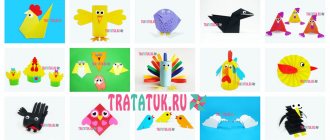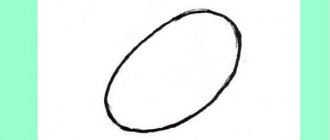Conversations about health in the “Jolly Guys” preparatory group
Conversations about health in the preparatory group
"Funny boys"
SEPTEMBER
TOPIC:
“Child and health”
Objectives:
to develop children’s initial life and health skills. Based on situational moments, learn to draw conclusions about life safety. Foster a sense of mutual assistance and a desire to help each other.
Progress of the lesson:
1) Talk about health, find out how children understand the word “health”:
- health is the best wealth;
- healthy - everything is great.
2) Bring in a casually dressed boy doll. Please note that dressing this way can harm your health.
3) Analyze situations when you need to behave carefully and take care of your health (how to walk on a wet floor so as not to slip; how to go down the stairs; how to dress when going for a walk).
Reading poems - advice.
OCTOBER
TOPIC:
“Healthy Products”
Objectives:
clarify children's knowledge about healthy products, their purpose for health and good mood. Fix the names of vegetables and their taste. Cultivate a desire to eat fruits.
Progress of the lesson:
1) Invite the children to remember what time of year it is now, show the gifts of autumn - a basket of fruits (examine and describe them).
2) Tell children about the health benefits of fruits for children and adults.
3) Ask what fruits parents buy for their children, remind them that in order to be strong and healthy, they must eat fresh fruits.
NOVEMBER
TOPIC: “Personal hygiene”
Tasks:
develop in children an understanding of the importance and necessity of hygiene procedures. Find out what accessories children use when washing. Learn to read clearly and emotionally.
Progress of the lesson:
1) Reading an excerpt from Mayakovsky’s poem “What is good and what is bad.”
2) Questions:
- Which boy do you like better?
- Why did you like the neat, neat boy?
- Did anyone like the other boy?
- Why didn't you like it?
- What toiletries do you need to wash away dirt and be clean?
- What, besides soap and a sponge, is needed for washing?
Invite children to show how children wash their hands and face (imitation movements)
3) Offer to learn a pure phrase:
- Milu's mom
With soap soap...
DECEMBER
TOPIC:
“ Human body”
Objectives:
clarify children’s knowledge of what parts the human body consists of, talk about the role of the senses. Learn to understand the meaning of certain parts of the body: arms, legs, head, torso. It is clear to answer the teacher’s questions. Cultivate the desire to grow up strong and healthy.
Progress of the lesson:
1) The doll Masha came to visit and brought pictures with images of her friends. Pay attention that all the dolls are different (height, hair and eye color), offer to find the differences, bring to the conclusion: they all have the same body parts (offer to show them on yourself).
2) Questions:
- What can you do with your feet, what games can you play?
- What do they do with their hands?
- Why are hands called first helpers?
- What are ears for?
- What should you protect your eyes from?
3) Look at photographs of children of different ages, pay attention to changes in their growth.
Encourage them to come to the conclusion that to grow big, strong and healthy, you need to eat well, exercise and take care of your health.
JANUARY
TOPIC:
“Vitamins and a healthy body”
Objectives:
talk about the benefits of vitamins and their importance for human health. Introduce children to the purpose of vitamins A, B, C. Activate the names of vegetables and fruits. Introduce foods that can be consumed in small quantities.
Progress of the lesson:
1) Show pictures of strong, healthy people, bring to the understanding that good health requires proper nutrition. Talk about the children's favorite foods.
2) Talk about vitamins, what foods they contain and what organs they help with.
3) Talk about products that are not very healthy (sweets, black coffee).
FEBRUARY
TOPIC:
“All kids need to know how to walk on the street”
Objectives:
consolidate the rules of behavior on the street: traffic rules, the concept of a traffic light and its purpose. Teach the rules of safe behavior on the streets. Contribute to the formation of a culture of verbal communication in transport.
Progress of the lesson:
1) Introduce and review the layout of the intersection. Clarify the meaning of traffic lights, the actions of pedestrians and drivers.
2) Questions:
- Who regulates traffic on the roads?
- What does each traffic light mean?
- Where can you cross the road?
3) Story-role-playing game “Bus”
MARCH
TOPIC: “Health is good, thanks to exercise!”
Tasks:
contribute to the formation of the foundations of a healthy lifestyle, the need to engage in physical education and sports. Fix the names of some sports.
Progress of the lesson:
1) Show pictures depicting different sports, check if the children know their names.
- What sports do you like and why?
- What kind of activity would you like to do?
- What sports can you do in winter and summer?
2) Reading of T. Volgina’s poem “Two Friends”
Questions:
- What happened to this boy, why did he get sick?
- Why do athletes get sick less often?
- What is the name of your favorite outdoor game?
3) Bring to a conclusion about the benefits of physical education and the need to do it.
APRIL
TOPIC :
“Doctors are our assistants”
Objectives:
consolidate knowledge about vitamins, clarify ideas about vegetables, learn to plant onions. Continue to instill in children an understanding of the value of health and the need to be healthy. Activate name: rosehip.
Progress of the lesson:
A “car” drives into the group, containing bags of rose hips, vegetables and fruits and Doctor Aibolit.
- D/i “Wonderful bag”
- D/i “Guess the taste”
Show rose hips, explain what they are. Pay attention to the onion and offer to plant it.
MAY
TOPIC: “How will I take care of my health”
Tasks:
consolidate understanding of a healthy lifestyle. Continue to introduce children to the professions of a doctor and a nurse, and cultivate respect for people in these professions. Repeat proverbs about health.
Progress of the lesson:
- How are you feeling today?
- Who in kindergarten takes care of your health?
- How can you help yourself be healthy?
- Is being healthy good or bad?
Summarize the children’s answers and repeat familiar proverbs about health.
Healthy lifestyle project for school preparatory children “Health Week”
To get health,
You don't have to go far.
We need to try ourselves
And everything will work out.
Target.
Formation of interest and love for sports and physical exercise. Expanding ideas about hardening. Formation of ideas about active recreation.
Tasks.
Wellness:
- Formation of a positive attitude towards physical education.
- Formation of basic knowledge in the field of hygiene, medicine, physical education.
- Formation in children of the necessary motor skills and abilities that promote health.
Educational:
- Through physical exercise, promote courage, endurance, patience and self-confidence.
- Create conditions for the manifestation of positive emotions.
Educational:
Form and improve new motor skills.
Relevance of the project:
Recently, health problems have become acute. There is a trend towards worsening health among children. Only a healthy child can achieve the required level of intellectual and cognitive development. Specially organized leisure activities are an effective means of promoting health and developing correct habits in preschoolers.
Various physical education activities help children develop agility, endurance, courage and other qualities of a strong personality. Conversations and games on the topic help create the prerequisites for a healthy lifestyle. Productive activities help children reflect on their experiences.
Project type: short-term.
Project participants : teachers and children of the preparatory group.
Expected result.
- Expanding children's knowledge about their health.
- A desire to take care of your health and the health of others.
- Introduction to the role of vitamins in human life.
- Familiarity with the causes of diseases.
- Getting to know the works of art. literature on the topic.
- Introduction to the structure of the human body.
Contents of project activities:
Stage I – preparatory,
Stage II – practical,
Stage III is the final stage.
Stage I – preparatory
- Learn concepts related to the project topic.
- Study of modern regulatory documents regulating health-preserving activities.
- Development of a long-term plan.
Stage II - practical
- Conducting a series of classes.
- Organization of targeted educational and advisory activities with parents on the formation of healthy lifestyle habits in children, organization of active recreation in the family.
- Preparation of an exhibition of children's drawings on the theme of the project.
Stage III - final
1. Holding a sports festival.
Thematic plan for “Health Week”.
| Day of the week | Content | Forms of work | Interaction with parents |
| Monday | To develop an understanding of the need to take care of your health, protect it, learn to be healthy and lead a healthy lifestyle. Instill a love of physical exercise and hardening. | GCD for cognitive development. Artistic and aesthetic development (modeling) “Still life”. Conversation “How we take care of our health” Didactic games: “Ascorbic acid and her friends”, “What is useful, what is harmful.” Outdoor game “Faster to places.” | Consultation for parents “Walking as a means of promoting children’s health” |
| Tuesday | Reinforce the idea of danger and disobedience. Strengthen knowledge of the rules for safe handling of objects. Form a conscious attitude towards your health, understanding the importance of hygiene. | Development of speech “Russian folk tale “Sister Alyonushka and brother Ivanushka” (story).” Conversation “Cleanliness and Health.” Didactic game “Strong Kids”. Reading fiction: K. Chukovsky “Moidodyr” | Consultation for parents “Formation of children’s ideas about a healthy lifestyle.” |
| Wednesday | Teach children to take care of their health and avoid situations that are harmful to health. | FEMP "At a doctor's appointment." Conversation “Dangerous invisible people”. Didactic game “Who knows more about themselves” | Note to parents: “Medical assistance.” |
| Thursday | Help children understand that health depends on proper nutrition - food should not only be tasty, but also healthy. | FEMP "Physical training" Artistic and aesthetic development (drawing) “Sports”. Conversation on healthy food. Didactic game “Healthy and unhealthy food”. Reading works about healthy and unhealthy foods: Y. Tuvima, E. Moshkovskaya, G. Sabgira. | Note to parents: “About proper nutrition and the benefits of vitamins” |
| Friday | To form an idea of the importance of physical activity in a person’s life, to develop interest and love for sports | Sports entertainment. Conversation “Clean water and air are a treasure!” | Consultation for parents “Physical education and sports in the life of a preschooler” |
The full version of the work is available.
Preparatory group. Senior preschool age. Children 6-7 years old
Leisure summary for children of senior preschool age on valeology “Eat for your health” Objectives: - to introduce children to various nutrients (proteins, fats, carbohydrates, their role and importance for the body; - to consolidate children’s knowledge and ideas about healthy foods, their influence on the human body.Objectives: • to give children an idea about products -…
Summary of a lesson on valeology for children in the school-preparatory group "Proper nutrition is the key to health" Summary of a lesson on valeology for children in the school-preparatory group "Proper nutrition is the key to health "
Goal: Clarify and consolidate children’s knowledge about proper nutrition. Objectives: Expand children’s knowledge about the structure of their body. To form children's ideas about...




